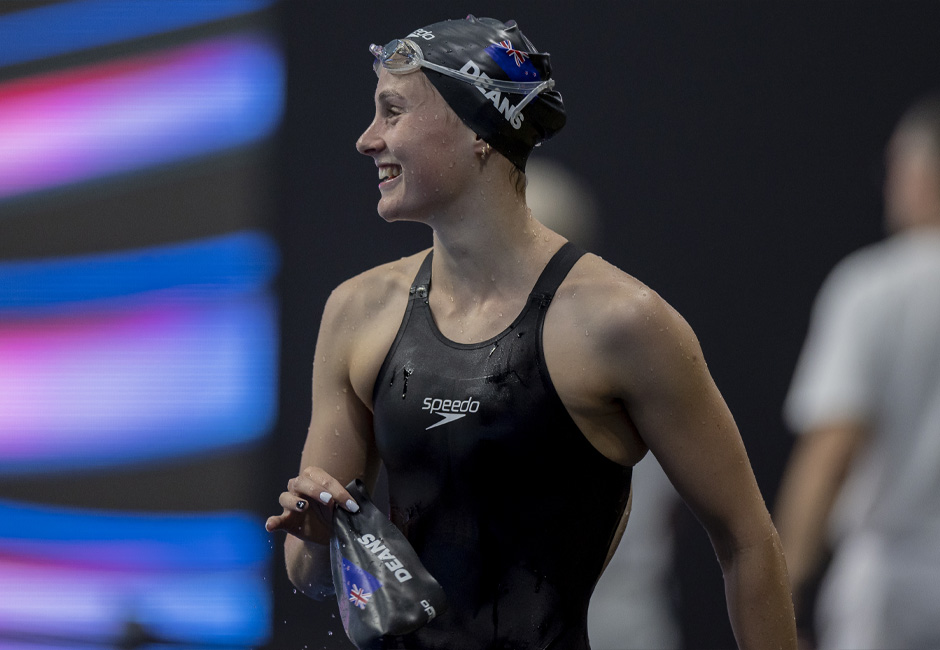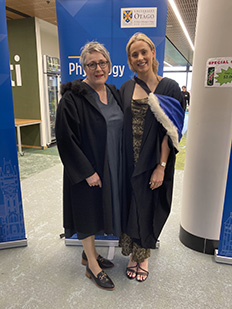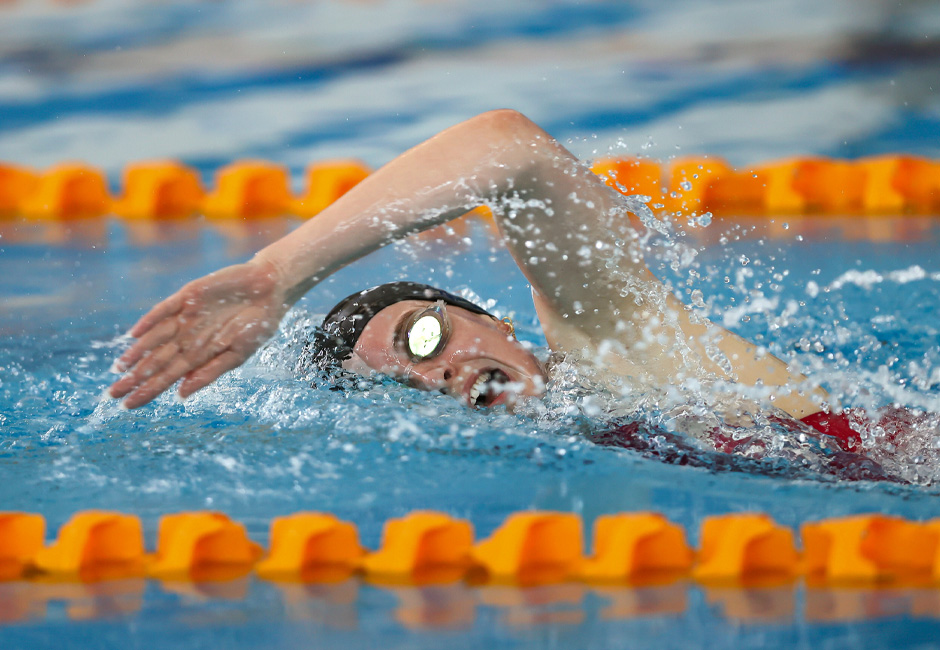
Caitlin swimming for New Zealand at the 2022 World Aquatic Championships in Budapest
“I loved the water from day one,” says high performance swimmer and top Physiology graduate Caitlin Deans. “Mum told me in those learn-to-swim lessons that I didn’t ever want to get out. That little kid in me always wanted to see where swimming could take me.”
And it’s taken her right to the top – since those first lessons as a three-year-old, followed by competitive swimming from the age of nine, Caitlin is now competing at the highest level both nationally and internationally. She made her Aquablack (New Zealand swimming team) debut at the 2019 World Championships in Budapest.
“I just love swimming. I love the sport, being able to really push yourself every day, sometimes two or three times a day, and do all that hard work and see what it can do.”
Her next big event is competing at the World Aquatics Championships in Doha in February, and she has her sights set on qualifying for the Olympics.
At the recent World Aquatics Swimming World Cup series in Berlin, Athens and Budapest, Caitlin was one of a team of five New Zealanders, four from Dunedin and one from Hawkes Bay. Competing at all three events, along with fellow Dunedin Neptune Club swimmer Erika Fairweather, she swam personal best times, made four finals in both Athens and Budapest and won a bronze in Athens in the 1500m freestyle, which is her favourite event. She also swam the 200m, 400m and 800m freestyle.

Caitlin and her mum Sue at graduation
“It wasn’t a qualifying competition but there’s a lot of benefits to going overseas and racing the top swimmers, world-class athletes. I think in New Zealand we are quite isolated, over in Europe and Great Britain they are racing each other all the time. It really does help normalise racing these big names that you just hear about, actually seeing them, seeing they are the same as you, that they get nervous too.”
She says staying in the same hotels gives the competitors a chance to build friendships with swimmers from around the world, and the big competitions draw big crowds, which adds to the atmosphere. The world cup meets are also run like a world championship, which gives swimmers the chance to practice the whole competition process, from marshalling to having your togs checked before competing, which otherwise they would only experience at world championships or Olympics.
Caitlin says she’s always loved training, but the world cup competitions have given her a love for racing, “which I think is something that’s going to help me get better and better and allow myself to show my training a lot more. Just having that enjoyment of racing in those really high-performance environments is probably my favourite thing.”
She says they are lucky in Dunedin at the moment to have a great group of like-minded athletes and high-performance coach Lars Humer. Her top-level Neptune teammates also include another Otago graduate, Esme Paterson, who graduated with a BAppSc in August.
“It’s really cool to train with people that all have similar goals and aspirations. It helps massively, I think a lot of us have each other to thank for where we are now.”
While being on the road is tiring, she says being away with the people you train with day in and day out means they become your family. And she also loves travelling to places she might never have gone to otherwise.

Coping with the long hours at the pool has never been a problem. “It’s just all I’ve known to be honest. I played other sport socially, but my only main sport has been swimming, so I’ve only ever known that kind of hours of training. I think it’s just prioritising recovery outside of it, making sure you’re getting enough sleep, I go to bed earlier than most other 23-year- olds! But prioritising that and some time away from the pool are the two biggest things.”
Over the past four years, Caitlin has also successfully juggled her swimming career and a degree in Physiology. She was awarded an Otago Performance Entrance Scholarship and began her studies in 2019. Graduating in August 2023, Caitlin was top Physiology student in her second and third years.
Physiology runs in the family, as Caitlin’s mum Sue Deans is the Department of Physiology’s Technical Manager. Sue has worked at Otago for 42 years and received the University’s Award for Exceptional Performance by Professional Staff in 2010.
For her studies, after some trial and error, Caitlin settled on a sweet spot of doing two papers each semester.
“I actually found study benefitted my swimming. I really enjoyed Physiology, so it helped that I was studying something that brought enjoyment. It was something that took me away from the swimming environment, which can be draining at that high-performance athlete level. I think having another part of my life that I could just switch off from swimming and be a student – I think they both helped each other.”
While swimming is now taking priority as she prepares for the World Championships in Doha, she’s still going to do a bit of study next year.
“I think my coach would agree with that, he says I’m more focused when I’m studying.” To fit in with her schedule, she’s decided to study online through the Harvard Extension School. In the future, she is keen to go into either medicine or clinical physiology.
Right now though, her focus is on Doha, and her ultimate goal is to qualify for the Olympics. She has two opportunities to qualify for the Paris Olympics in July and August, one at Doha and the second at the New Zealand Open Nationals in early April. Normally there wouldn’t be a World Championships and an Olympics in the same year, but the competition circuit became compressed due to COVID-19, which has turned out to be a silver lining for Caitlin, giving her more international race practice than in pre-COVID times.
“It definitely is like a childhood dream of mine to go to the Olympics one day. All I can do is work as hard as I can between now and then and see if it will come.”
Kōrero by Margie Clark, Communications Adviser Development and Alumni Relations Office